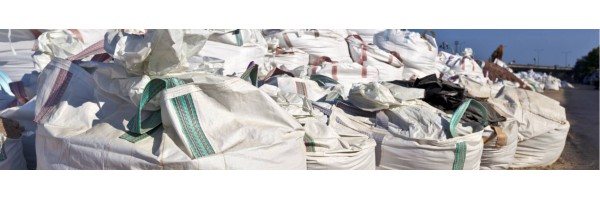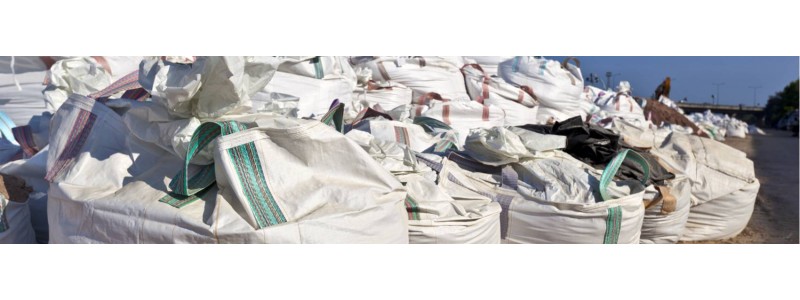
Here at Centurion Packaging, we cater to a variety of industry applications and product needs with our range of FIBC bulk bags.
The organics industry, which includes food, hemp and other agricultural products presents some of the most unique requirements. This is because the materials are grown in the ground and when harvested they have shelf lives. The longer perishables spend between harvest and processing - the higher the risk of contamination and spoiling.
This is also the case for the hemp/biomass industry where long processing queues significantly extends the time the product spends in transportation and storage. It is crucial the product is protected during these extended periods to prevent the biomass from becoming contaminated. This will also ensure the product is ready for processing when the time is right.
For our latest blog, we are going to look at the different ways FIBC bags protect your products in transportation and storage.
6 Crucial Factors in Storing Your Products
Moisture Control - The aim during transport is to strike a balance between keeping your products moisture in and keeping outside moisture out. This will prevent any moisture-based contamination.
Coated or Uncoated? - For hemp or biomass, the decision between a coated and non-coated bulk bag is an easy one. Due to the high-moisture nature of hemp and biomass products, Centurion Packaging does not recommend coated bags for transport or storage of these products. This is unless your product is being transported or stored in a shelf-stable environment. A temperature-controlled dry warehouse facility is a great example of this, making a traditional uncoated bag an acceptable fit. The fabric used for uncoated bags will allow the product to breathe and helps to prevent mould.
FIBC Liners - Using a bag liner is the best way to protect your hemp or biomass from moisture. These liners are manufactured from polyethylene and can be sealed tight preventing contamination of contents. In the hemp industry these can be combined with a nitrogen packing solution which allows users to inject nitrogen into the bag which seals the bag. This greatly increases the shelf life of the product with nitrogen being non-reactive, unlike the oxygen it is replacing.
Bulk Bag Height and Stacking - One of the most common industry applications of bulk bags is transportation and/or storage. Not all bags are designed for stacking, which is something required for truck-based transportation and long-term storage. It is important to consider the size of your bulk bags before looking at stacking them while being transported or stored for a long time.
UV Protection - If you do not have plans to use a bag with liner setup, we would recommend avoiding a coating to allow your products to breathe. This is important for hemp and all biomass, because of the risk of mold. Molding occurs when the product receives no airflow, with even dried hemp having some moisture content.
Another option is a vented bag which allows greater airflow compared to a standard non-coated bag.
Dust and Other Particulates - A standard woven polypropylene bag is manufactured not be dustproof. The woven nature of the material means on standard bags, dust and other contaminants can sift through and contaminate the product. This is also the case for very fine powders and/or other fine products that can be stored in bags as they will often sift out of a standard bag.
For situations where contamination of any kind is unacceptable, we would recommend an FIBC liner. The liners are made from polyethylene plus they can be sealed shut to completely seal the product inside. This prevents dust and other particulate matter getting into the bag. Fine powders stored in the bag will also not be able to escape.
Want to Know More? Get in Touch
We hope you have found this blog insightful with regards to the storage of hemp and biomass products.
If you would like to know more about our range of FIBC bags, please contact us today.

 5% OFF YOUR FIRST ORDER OVER £50! JUST USE COUPON “MY1STORDER” AT THE CHECKOUT FREE NEXT DAY DELIVERY FOR MOST UK MAINLAND ORDERS, PLEASE SEE T&C'S
5% OFF YOUR FIRST ORDER OVER £50! JUST USE COUPON “MY1STORDER” AT THE CHECKOUT FREE NEXT DAY DELIVERY FOR MOST UK MAINLAND ORDERS, PLEASE SEE T&C'S
.jpg)